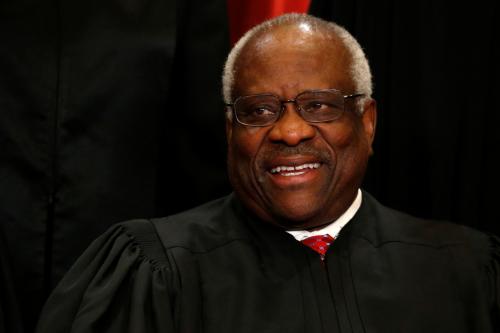The Wall Street Journal recently reported that the Facebook ban on Australian news outlets deprived an entire population on Thursday Island, located off of Australia’s northern tip, of a reliable source of timely news and information in indigenous languages. Facebook might have been aiming at what it took to be regulatory overreach from the Australian government, but it hit a vulnerable population at a time when reliable information about public health could not be more urgent.
Facebook restored service after it reached a last-minute face-saving compromise on the Australian law that empowers an arbitrator to set terms and conditions for carriage if social media companies with bargaining power do not reach an agreement with providers of core news outlets. But legislators in the U.S. and around the world might learn some lessons from this tussle between the global tech giant and Australian legislators.
To be clear, the Australian approach is a limited way to deal with tech monopoly power and the crisis in news production. It does not stop Facebook from dropping news sources again if it does not like the arbitrator’s commercial arrangements. Moreover, as media scholar and others have pointed out, public funds and infrastructure for local journalism will be needed in addition to subsidizing established national news outlets.
But the Australian approach is a start. It presupposes, even if it does not enforce, the idea of a public interest in the availability of legitimate news sources on social media platforms. In the U.S., a precedent from traditional broadcast regulation shows today’s legislators how to uphold the public interest and enforce a requirement for news carriage on platforms.
Several generations ago, U.S. legislators required cable operators to carry local over-the-air broadcast stations. These outlets provided programming in local news and public affairs that the national cable channels did not, and Congress decided that they added something crucial for local communities. Following their own preferences and market incentives, cable companies might refuse to carry some or all of these local stations, an outcome that Congress blocked by giving local stations a right to demand and receive carriage.
Legislators need to explore how such a system could be applied in a practical and enforceable way to dominant social media companies and news providers. The key idea is that social media companies should not be allowed to de-platform any core news outlets.
A crucial question is defining the scope of this platform carriage rule in today’s online world where everyone can claim to be a news source. The Australian law already answers this question. It defines the beneficiaries of its arbitration system with content, geographic, and economic criteria, and creates a regulatory structure to supervise the system. The same companies that benefit from the Australian arbitration system could also be granted a platform carriage right.
A proposed U.S. law, poised for reintroduction this year, would grant news outlets the right to bargain collectively with social media companies and defines the relevant parties in an enforceable way. A new platform carriage requirement could use the same definitions.
In any other jurisdiction, the idea that a news blockade furthers free speech values would be ludicrous, but it must be taken seriously in the U.S. where the speech rights of private companies are given priority. In its 1997 Turner II decision, the Supreme Court ruled that a broadcast must-carry requirement was necessary to prevent cable operators “from exploiting their economic power to the detriment of broadcasters.” This precedent and a line of other court decisions including Associated Press and Red Lion build a plausible First Amendment case for a platform news carriage duty as vindicating the right of platform users to access to diverse information and political perspectives. As the Court in the Red Lion case explained, “It is the right of the viewers and listeners, not the right of the broadcasters, which is paramount.”
Social media companies like Facebook present themselves to the public as “the digital equivalent of a town square.” Of course, they have their content rules and their disfavored businesses such as gun and porn merchants. But social media users generally felt that if they played by these rules they would be assured of carriage.
The Facebook blackout of news in Australia demonstrates that this confidence is misplaced. Under current law, platforms can remove any company or person for any reason or no reason. Legislators and the public now know that platforms will not hesitate to use this legal right, not to keep their systems free of harmful or illegal content, but to pursue their own political interests, regardless of the effect on the public or on vulnerable users who have come to depend on the platform.
To counter that display of platform power, legislators in the U.S. and around the world need to consider limiting the ability of tech companies to de-platform news operations through a practical and enforceable news carriage right supervised by a competent regulatory agency.
Facebook is a general, unrestricted donor to the Brookings Institution. The findings, interpretations and conclusions in this piece are solely those of the author and not influenced by any donation.
The Brookings Institution is committed to quality, independence, and impact.
We are supported by a diverse array of funders. In line with our values and policies, each Brookings publication represents the sole views of its author(s).








Commentary
Lessons for online platform regulation from Australia vs. Facebook
March 10, 2021